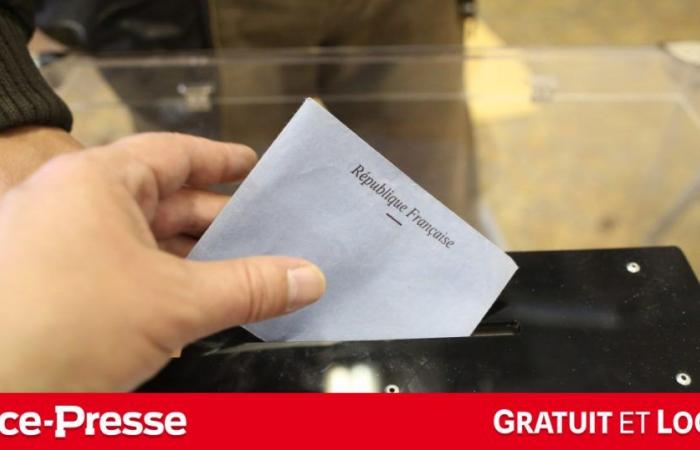Spouses, children, cousins, neighbors… Three days before the first round of the early legislative elections, the mayors are competing in imagination to recruit the assessors necessary for the smooth running of the ballot, a rare commodity as the summer holidays approach, some going even to the point of paying them.
With only three short weeks to organize since the surprise dissolution of the National Assembly, the largest municipalities are warning of a general shortage of assessors.
According to the electoral code, at least two volunteer assessors must be present on voting day to register voters or hold the ballot box, in addition to a president, responsible for policing the office and often an elected official. A secretary, generally recruited from among municipal agents and paid, is more specifically responsible for drafting the minutes.
“Certain municipalities are still seriously lacking assessors,” confirms Murielle Fabre, general secretary of the Association of Mayors of France (AMF). The expected increase in participation and possible “last minute” registrations which could be imposed by a court do not, according to her, contribute to the peace of mind of elected officials.
In Bures-sur-Yvette (Essonne), 9,200 inhabitants, five assessors are missing from the last count for the first round, twelve for the second.
“I pull out all the stops, I call people I know and I start each neighborhood meeting by asking people if they are available to help,” says Mayor Jean-François Vigier (UDI).
“We’re really struggling. In villages where there is often only one office, the mayor and his two deputies are enough, but we have 45 municipal councilors for 35 offices and we cannot cover everything”, adds Brice Rabaste, mayor of Chelles (Seine-et-Marne), 54,000 inhabitants.
It’s all the more complicated since “the month of June concentrates events, weddings, communions, and people go on vacation”, continues the elected LR.
Historically, parties and candidates dispatched an army of assessors, but the source dried up with the decline of large partisan structures.
– “Usant” –
“It’s a real change, the political parties no longer have militant reservoirs and the candidates do not have a team or supporters,” recognizes Gil Avérous, mayor (ex-LR) of Châteauroux, judging “particularly using” the work of recruitment and creation of schedules.
To find 1,024 people in its 256 polling stations, Nice reached into its pocket, especially since the declared candidates only nominated “104 people”.
The city has even launched a “call for applications” on its website, where it details the compensation: 190 euros gross per day for an assessor, 210 for a secretary, 230 for a president.
A provision prohibited by the electoral code but which the city justifies by the risk of seeing the voting operations of deficient offices “totally canceled”.
If the number of assessors is less than two, the electoral code nevertheless provides for the designation of voters present and “knowing how to read and write French”.
“People who are not designated by candidates or political parties can carry out these functions under the vacation system,” argues the city in a press release, assuring that “this very old organization (…) has never done so. subject of a remark from the prefecture’s elections service”.
In Besançon, 119,000 inhabitants, the environmentalist town hall will also pay 175 euros gross on Sunday for the 68 students recruited on fixed-term contracts as “assistant secretaries”.
In total, she will pay 45,000 euros in personnel costs just for the first round.
“Without that, we would not have been able to open around ten offices and then it brings young people back into the offices,” observes Elise Aebischer, deputy mayor Anne Vignot. The latter had written in vain in December to the Minister of the Interior Gérald Darmanin to try to change the legislation towards remuneration of assessors.
“Some cities will not have the means to pay and there is a risk of paying activists,” warns Gil Avérous.
According to Jean-Pierre Camby, professor of constitutional law at the University of Versailles Saint-Quentin, “the assessors are a completely voluntary function and any voter can claim that the office is illegally composed, or contact the prefecture or the magistrate responsible for the control.”
He also recalls that “if it is a question of hiding an absence for vacation of a municipal councilor, the latter will be automatically dismissed because he cannot refuse to participate, without valid excuse, in a polling station “.






